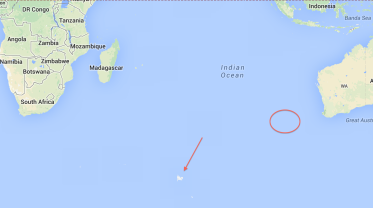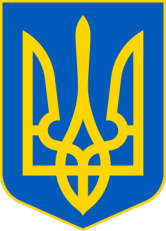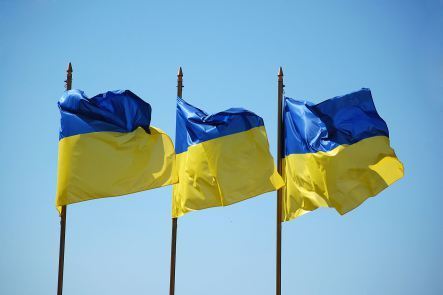Bill Murray's Blog, page 130
April 14, 2014
As Goes the East
Dmitri Trenin says “absent urgent and massive assistance to Ukraine coupled with a strategy of economic reform, Eastern Europe’s largest country will plunge into a tailspin and likely disintegrate.” It starts to look like he’s right, as Ukraine’s national government is shown to be unable to carry out its most basic function – protecting the security of its citizens – in the east. The irony is that Kyiv’s putative reformers can only wield the defense forces bequeathed by Yanukovich, which, in Yanukovich’s east, are keen that Kyiv not succeed.


April 11, 2014
Gangtok, India
Gangtok, the capital of the former kingdom of Sikkim, lies between Bhutan and Nepal near the Indian border with Tibet. From a visit in December, 2013. Click the photos to enlarge. All the photos from that trip, to Gangtok and Saigon, Vietnam, are here. See also the India and Vietnam galleries at EarthPhotos.com.


Other Views on Estonia and NATO
A couple of others have elaborated on the theme of my recent article about NATO, Estonia and Russia. Financial Times Baltic correspondent Richard Milne has filed this video report from Narva, on the Estonia/Russia border (above, from the video). Talking about Narva’s large Russian speaking population in the video, Katri Raik, the Director of Narva College, gets pithy: “What is the reason the Russian speaking people are in Estonia, have not left Estonia? And maybe the best answer is you must go once from Ivangorod to Narva and you can understand life in Estonia is really better than Russia.”
Also for your consideration, here is a piece titled Is Estonia Worth a War?. The author is the director of foreign policy studies at the Cato Institute, an organization which is, but doesn’t take kindly to being labelled, isolationist.


April 10, 2014
Tambora: the Eruption that Changed the World
April 9, 2014
Excruciating
April 4, 2014
Friday Photo Quiz #195
The twentieth anniversary of a historic tragedy in this country is next Monday, 7 April. Can you name the country? The photo at bottom is its capital city. Extra credit for the name of the capital city.
Click through for the answer. And a good weekend to all from CS&W and EarthPhotos.com.
 7 April, 2014 is the twentieth anniversary of the beginning of the genocide in ……………………… Rwanda. The capital city is Kigali.
7 April, 2014 is the twentieth anniversary of the beginning of the genocide in ……………………… Rwanda. The capital city is Kigali.
There are more photos in the Rwanda Gallery and the Mountain Gorillas Gallery at EarthPhotos.com.
And take all the CS&W photo quizzes.


March 28, 2014
Oh Good, Another Post about Kergeulen

Out there where they think that Malaysian jet crashed is pretty remote, and all the maps show the spot in reference to Perth, on the west coast of Australia. They’re searching generally around the oval. So what else is around?
Not much. Diego Garcia, secret, military laden, fuggedaboutit.
What’s left is Kergeulen, aka the Desolation Islands, arrow. It’s all too seldom that you get the chance to recommend The Arch of Kerguelen, the only book I know about Kerguelen, but I can’t let the chance pass me by. Don’t imagine Jean-Paul Kauffman, the author, had a real rollicking time there, though.
“At first the wind blew from the north in gusts with a deep, mournful roar as if a huge pack of mad beasts were charging.”
“The wind shakes the cabin and pushes in the corrugated iron that suddenly loses its tension, producing a resounding gong. There’s no hope of going outside.”


Miss America Nails Geopolitics
Four days ago Barack Obama declared that “The United States does not view Europe as a battleground between East and West, nor do we see the situation in Ukraine as a zero sum game. That’s the kind of thinking that should have ended with the Cold War.”
And today Charles Krauthammer wrote “Should. Lovely sentiment….That’s the kind of sentiment you expect from a Miss America contestant….”
I think that’s funny and I think Mr. Krauthammer is engaging. But as Henry Kissinger said in another context, Obama’s words have the added benefit of being true. That ‘Europe as a battleground’ thing DID end with the Cold War.
Except in the Kremlin. And with its weird doppelgängers, the bellicose wards of the American right.


Friday Photo Quiz #194
For this week’s quiz we’ve chosen a country in a normally quiet part of the world that has geopolitical relevance at the moment. First, two photos along the waterfront of its biggest river and then two more shots from this country’s capital and main town. Can you guess the country? The city? Extra credit for the river. Click through for the answer. And a good weekend to all from CS&W and EarthPhotos.com.
 And the answer is ………………….…….. because of the Baltic States’ relevance to today’s news, we’ve chosen Latvia for this week’s quiz. The capital, in all four of these photos, is Riga, and the river is the Daugava.
And the answer is ………………….…….. because of the Baltic States’ relevance to today’s news, we’ve chosen Latvia for this week’s quiz. The capital, in all four of these photos, is Riga, and the river is the Daugava.
There are more photos in the Latvia Gallery at EarthPhotos.com.
And take all the CS&W photo quizzes.


March 26, 2014
Peril May Not Come from Crimea or Ukraine
 Moscow’s chiseling off a bit of Ukraine was a needless, nervous overreaction to the fall of the Yanukovych regime in Kyiv. The Russian Federation already had effective control of Crimea.
Moscow’s chiseling off a bit of Ukraine was a needless, nervous overreaction to the fall of the Yanukovych regime in Kyiv. The Russian Federation already had effective control of Crimea.
The Kremlin’s ham-handed land grab illuminates its defensive crouch, revealing Vladimir Putin as cornered animal. Russia really is acting from weakness. Its buffer states are long lost, NATO has pushed to its border and now that its crony in fraternal Ukraine has fled, the danger of democracy has drawn right up to Mr. Putin’s door.
Weakness doesn’t imply impotence. Animals fearing mortal peril are more likely to lash out, and one immediate and obvious potential target is the NATO alliance, whose expansion into the Baltics, however good it may have looked at the time, has left it recklessly exposed.
In 1994, as Russia lay shambolic after the Soviet collapse, NATO welcomed former Soviet republics and satellites into its Partnership for Peace. Five years later the Czech Republic, Hungary and Poland became full NATO members. Five years after that, ten years ago this week, NATO took in seven more countries, three of which, the Baltic states, border Russia (Poland also has a border with the Russian exclave Kaliningrad).
Proponents of expansion at the Brookings Institution wrote that “… fears that enlargement would provoke a new cold war were always greatly exaggerated.” Until now. They argued that “… enlargement will be most successful if it can be accomplished without driving a wedge between Russia and the West.” To the contrary, pushing a military alliance that was founded to oppose Russia right up to Russia’s border has done precisely that, giving an embattled Russian leader an opening to upset the entire Allied apple cart.
•••••
When the Russians made their move in Crimea, Ukrainian Prime Minister Arseniy Yatsenyuk called upon them not to “violate the Budapest Memorandum,” a 1994 document in which signatories Russia, the United Kingdom and the United States pledged to respect Ukrainian sovereignty and refrain from the use of force against it.
Ukraine saw the memorandum as protection from invasion. Russia violated it explicitly and the U.S. and U.K. brushed it aside, calling it a “diplomatic document,” not a treaty. So much for diplomatic documents. So now Yatsenyuk is on to Plan B, signing deals with the EU, inveighing against Russia, pleading for Western support.
It may be, as Gideon Rachman has written, that a Ukraine war would spell disaster for Russia. But there are more clever ways for the Russian leader to wreak calamity than a military assault on the Donbass.
Consider NATO’s northeasternmost outpost, the Estonian border town of Narva, along the main highway from Tallinn to St. Petersburg, which is 82% ethnic Russian (2011). Suppose Mr. Putin were to move, let’s say, 200 un-uniformed men just over the border to protect the ethnic Russians there against intolerable harassment at the hands of the evil, brutish Estonians.
Neither the U.S. nor the Europeans ever meant to commit troops to Ukraine, which is not a member of NATO. Do you think they would go to war in Estonia, which is? Sent to buck up the allies last week, Vice President Biden strongly implied that they would. In Lithuania and Poland he declared the U.S. “absolutely committed” to defending its allies.
“I want to make it unmistakingly (sic) clear to you and to all our allies in the region that our commitment to mutual self-defense under Article 5 of NATO remains ironclad,” he said.
Article 5 is the famous “one for all and all for one” clause in the NATO treaty. In the popular imagination Article 5 implies that an attack on any member would require military support from all the rest.
Take a look at Article 5:
The Parties agree that an armed attack against one or more of them in Europe or North America shall be considered an attack against them all and consequently they agree that, if such an armed attack occurs, each of them, in exercise of the right of individual or collective self-defence recognised by Article 51 of the Charter of the United Nations, will assist the Party or Parties so attacked by taking forthwith, individually and in concert with the other Parties, such action as it deems necessary, including the use of armed force, to restore and maintain the security of the North Atlantic area.
Each party will assist the aggrieved by taking such action as it deems necessary. Does anybody believe that the U.S. and German and British armies would deem it necessary to face off with a coven of Mr. Putin’s plainclothes protectors on the Estonia/Russia border? And if not, does anybody believe the credibility of the NATO alliance would survive the next morning’s light?
•••••
Everybody loves grand historical markers: “The End of History,” “The American Century,” “The Rise of China.” Asked if this is the beginning of “A New Cold War,” Zbigniew Brzezinski replied that “It’s beginning to look that way.” Michael McFaul, the most recent American ambassador to Moscow, delivered his valedictory démarche in the New York Times, declaring that Crimea “… ended the post-Cold War era in Europe.”
Whether the events starting with Crimea’s annexation will rise to the level of era-renaming remains to be seen, but it’s safe to say relations with Russia will no longer be as they always have for Americans under age 40 or so. Let us hope that a cornered but cunning Vladimir Putin won’t add “NATO embarrassed to death” to the list of ways things are different.

























